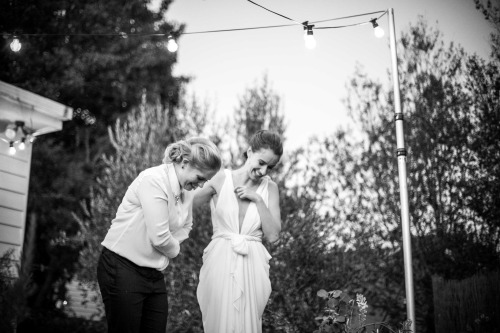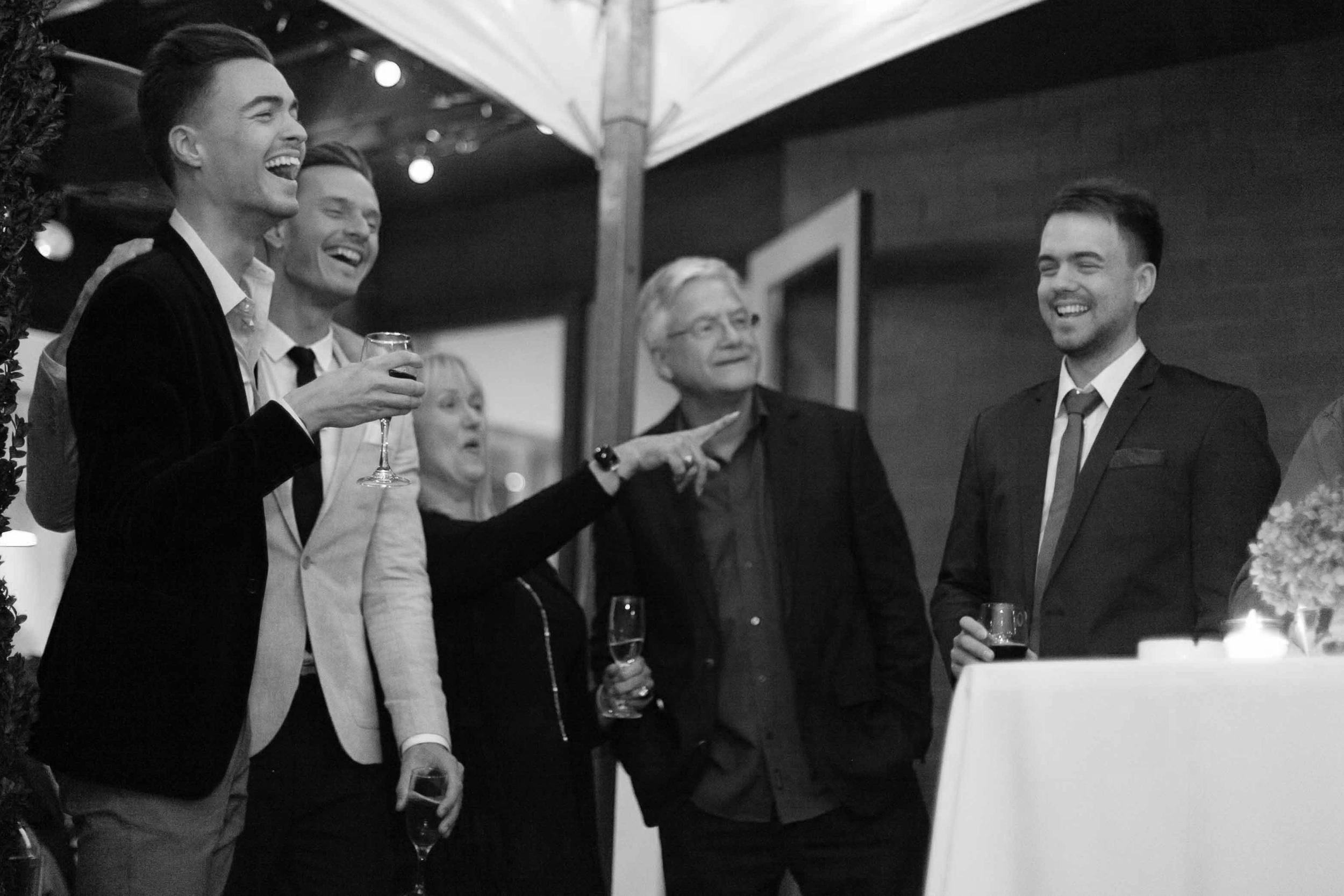Common Traditions, New Rules


Mr Theodore discusses the top 5 most common wedding traditions that need to be re-considered if you're a same-sex couple planning your wedding.
We’ve entered a whole new category of weddings, the ‘same-sex’ wedding, and even though Mr Theodore works hard to erase the line between ‘same-sex’ and ‘opposite-sex’ weddings, common traditions don’t always easily translate.
1. Who walks down the aisle?
The great thing about weddings now is that you have complete freedom to do what you want. Traditions and rules don’t stick like they used to and couples now have complete freedom to design their entire wedding in a way that is reflective of them.
How about not walk down the aisle at all. One idea that I like is for the couple to greet their guests together as the guests arrive, welcome them personally to your ceremony, hand them a drink and once everyone has arrived proceed with the formalities.
I must say, I do love the suspense of going to a wedding ceremony and awaiting the arrival of the bride and/or groom.
How about meeting your partner before the ceremony at a special and meaningful location, travel to the ceremony together and walk down the aisle together, hand in hand.
If you love the idea of walking down the aisle with your parents giving you away than a great way to do this is to make your entrance one after another with both sets of parents.
2. What name goes first?
There is no set rule to this. The way my partner and I decided was to repeat our names out loud, first his then mine and vise versa, we decided that Nicholas & Alexander rolled off the tongue better than Alexander & Nicholas.
3. Which set of parents get named on the invitation?
Like all weddings, it is generally the parents that host the wedding who get mentioned on the invitation and more traditionally the brides parents would always get a mention, as they would be giving their daughter away in marriage. In a same-sex wedding things are a little different. I find it beautiful to see both sets of parents equally mentioned but if this can’t be the case, the parents that play the largest part in the wedding get a mention. Unfortunately, some same-sex weddings may not see both sets of parents supportive, or if the couple is fully independent and arranging the entire wedding themselves they may opt not to even mention the parents names.
4. Do we need a bridal party?
‘Brides’maids, ‘grooms’men, ‘grooms’maids, or how about a ‘brides’men or ‘grooms’ladies. Having a bridal party is a completely personal choice both for gay a straight weddings, but who doesn’t love being surrounded a little more closely by your best friends or siblings that have played such an important role in your life. Lopsided bridal parties are completely acceptable these days so why not opt for the people that mean the most to you rather than ensuring both ‘sides’ are equally numbered. Don’t ask step-brother Robbie who you never speak to be a groomsman just because your partner has an extra important person on their side of the wedding party. Or why not diminish sides all together, ask your closest joint friends to be your wedding party without distinguishing certain roles, have them greet all your guests and be waiting for at the front for your arrival. To hard to choose? Well than don’t have one, ask one of your closest siblings on either side to be a witness and one of each of your best friends to make a speech.
5. Do you invite your non-supportive family to your wedding?
No, you don’t have to invite them and nor should you feel obliged to invite them. Your wedding is a celebration of your love and what is important is having the people around you that support you, the ones that want to see you happy no matter what the circumstances, the ones that support you in the midst of everything you have gone through.
The LGBT community has gone through a lot to get to where we are today and the fact that there is so much support for our weddings in the first place is milestone reached. The last place you want to have negative energy surrounding you is at your wedding.
Don’t feel as though you have to invite non-supportive relatives to your wedding just to have them there, I have vast experience with in dealing with a religious and non-supportive family and my partner and I have had to make the decision of not inviting them to our wedding. It is not a matter of not wanting them there, it is a matter putting yourself first and enjoying the most special day of your life with the ones that support your life long commitment.
Images by J Not Jay Images.
